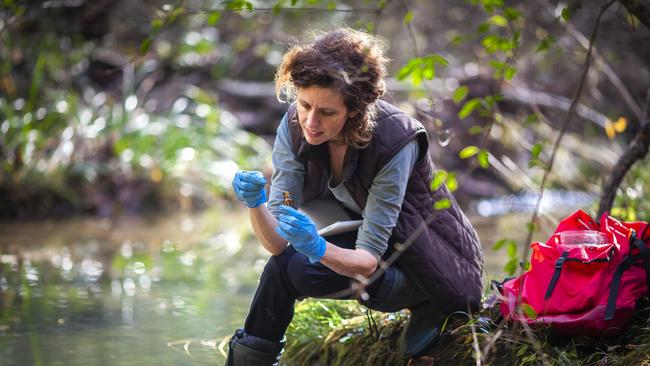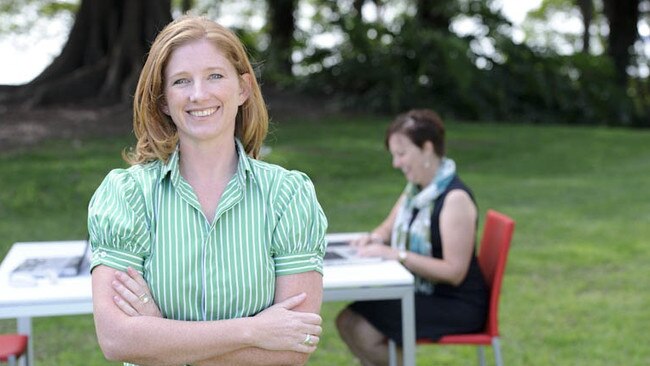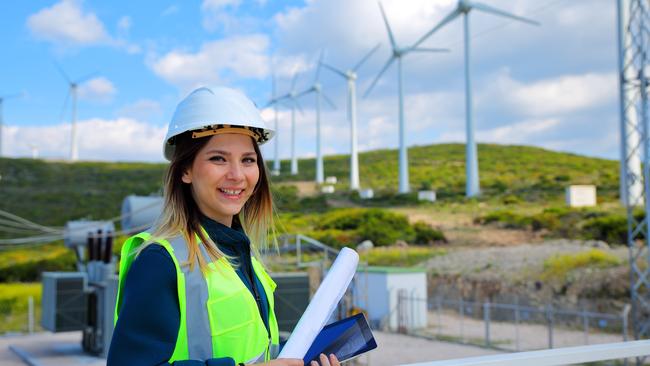Why you should incorporate sustainability skills in your toolkit to land your ideal job
The number of jobs requiring green skills has increased by more than 50 per cent in the past five years, as workers seek out organisations with strong sustainability credentials.
SmartDaily
Don't miss out on the headlines from SmartDaily. Followed categories will be added to My News.
The number of jobs requiring green skills has increased by more than 50 per cent in the past five years, as workers seek out organisations with strong sustainability credentials.
Young Aussies are driving the growth in green jobs, with experts recommending they look to upskill in sustainability to future proof their employment.
“Every job can become greener and a wide range of green skills can be incorporated into all sorts of jobs,’’ says LinkedIn Australia managing director Matt Tindale.
“Regardless of their current field of study, we encourage all young Australians to actively think about how they can incorporate green skills into their ideal job.
“To help with this, they (could) take a sustainability-related module at university or upskill using the many sustainability courses available … to advance their careers and become more future-focused.’’
THOSE HIRING GREEN WORKERS
New LinkedIn research reveals Australia is the only country in the Asia-Pacific with an increasing share of green job hires, which accounted for 1.2 per cent of all job hires last year – a 50 per cent increase from 2016.

The fastest growing green jobs include sustainability manager, ecologist and geologist, while the sectors hiring the most green talent include construction, corporate services, energy and mining, public administration and manufacturing.
“The sustainability sector is rapidly increasing in size as climate change is on everybody’s mind today more than it ever has been before, and that’s driven by the younger generations who are looking to ensure that the planet will remain inhabitable for them and their future children,’’ Tindale says.
“We predict that the future of green hiring is bright and the trend will continue, however, it is important everyone continues to contribute, through learning new green skills and incorporating those skills into our daily lives and jobs.
“More importantly, we need to think beyond traditional green jobs and reimagine how all sorts of roles can incorporate green skills. For example, a fashion designer can learn about sustainable materials.’’
CAMARADERIE
Melissa Houghton says work opportunities were “pretty slim’’ when she started as a sustainability consultant 15 years ago, but increased awareness of the need to protect the planet now means she is “crazy busy’’.

She says while the work itself is rewarding, the camaraderie among green workers is particularly gratifying.
“Consultancy is always going to be competitive but I haven’t found that people hold things close to their chest,’’ says Houghton, who founded boutique consultancy Eighty20 Communications, which helps organisations develop and implement sustainability strategies.
“I’ve found people are really willing to share their learning and collaborate on projects and, from a career perspective, it’s been a really positive environment to work in, even though you’ve still got all the challenges (of implementing sustainability strategies) coming at you.’’
EMPLOYERS CAN DO BETTER
Microsoft ANZ sustainability director Brett Shoemaker says there has been an increase in the number of jobs where sustainability is included in the job title, and in job advertisements that list green skills requirements.

But workers still want their employers to do better, with recent Microsoft research revealing 43 per cent disagree with the way their company’s plans for reaching net zero emissions are carried out.
“The things employees do at home (to reduce their personal carbon footprint), they want to see carried out in the workplace, and there are not as many incentives (for workers to do this) as they would like,’’ Shoemaker says.
He says just one-third of workers say they feel supported to use recycled goods at work, and only 14 per cent are encouraged to minimise their energy use or take advantage of renewable energy resources.
And while 44 per cent of businesses leaders say they are training their staff in the skills needed to implement their organisation’s sustainability plans, just 17 per cent of workers say they have received such training.
Shoemaker says employers who can clearly demonstrate how they are working towards greater sustainability will benefit from greater staff retention and attraction.
BREAKOUT
Most popular green skills:
• Sustainability
• Environmental awareness
• Environmental science
• Environmental management systems
• Environmental impact assessment
Source: LinkedIn Green Skills Report
Originally published as Why you should incorporate sustainability skills in your toolkit to land your ideal job




